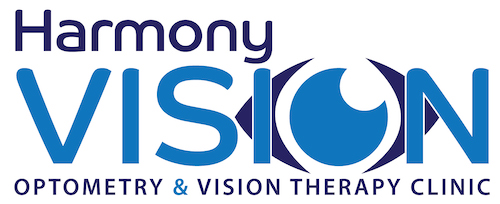Why you can’t use an iPod as a babysitter!
I was shocked, yet not overly surprised recently to discover there are now devices that you can insert your iPhone or iPod into, to ensure that your baby does not wreck it whilst playing with it! Certainly, we cannot ignore the impact that small screen devices now play in our world. We communicate on them, we organise our lives on them, we socialise on them, and we can be entertained by them! But should we be allowing our children, toddlers and yes, even infants to play with them too?
Why is the real world so important?
Growing bodies are just that. Brains, muscles, bones and everything in between is developing. From my point of view, visual development requires one critical thing – interaction with the real world. Moving through space and interacting with real objects guides the development of depth perception, focusing, eye teaming, tracking and visual perception which are later critical for optimum performance in the classroom and for life. There is no short-circuiting this developmental route. It is not physically possible to get the same result from a game. Yes, gaming can improve your child’s hand-eye coordination – but predominantly just for games!
Risks to children
Research that provides an insight into the real impact of these devices on visual development is likely to be years away. There has been concerns raised about the impact of TV on development, we are concerned that personal devices may also have some negative impacts. Here are a few tips to for parents to consider:
- Limit pre-school children and toddlers to 15 minutes per day on small screen devices;
- Children between 6-9 yrs should limit their time to between 30mins to 1hr a day;
- Older children should limit their time playing on small screen devices, and ensure they take regular breaks every 15-20minutes. This is because their world requires them to make use of so many other screen-based devices such as computers, that it is important to have some visual rest from close viewing. To reduce the risk of short-sight, research shows they should regularly spend time outdoors looking far into the distance;
- Parents should also limit their time playing on devices, in order to spend quality time communicating and interacting with children. Children develop their ability to process language, which importantly includes body language by participating in two-way conversations.
Striking a Balance
So will every child who uses these devices have problems? Definitely not! But limiting their use is all about balance. Children tend to hold small screen devices quite close, which places a much greater demand on their visual system. Limiting their use ensures that visual fatigue resulting in tired eyes, headaches and sore eyes can be reduced. If you can choose screen size, then always go for the bigger screen eg ipads are better than iphones.
But won’t my child be left behind the rest of the world if I don’t allow them access to these devices? This is a common concern, but maybe unfounded. Children are great imitators and quick learners. They cannot fail to notice others using these devices, and it is my experience that they literally take to them “like a duck to water”! This is the reason why parents need to be the authority in regulating their use, because young, growing bodies do not understand why they should be limited.
Small-screen devices are likely here to stay in a big way. And I am the first to admit – they can be lots of fun. I am also the first to admit, that parenting is fun, but it requires 25 hours a day! These devices can be tempting to “just keep your little ones entertained for a bit”. But let’s be smart about it. Before we jump in with both feet, it is important to stop and consider what we are leaving behind. Don’t underestimate the power of “traditional play” for your children. Encourage them to interact with a variety of play things, including you!
